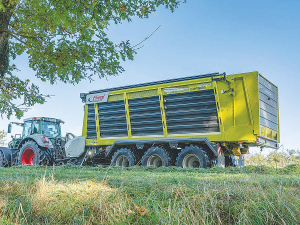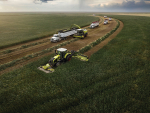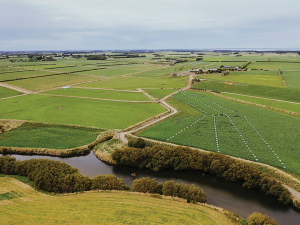Back in 2022, Claas announced the sale of its Cargos self-loading wagons to Bavarian company, Fliegl, suggesting that the market for such wagons was static, with too many players vying for the limited business and a pressing need for more room at its Bad Saulgau factory.
Not wishing to appear that it might be leaving its customers in the lurch, there needed to be an established need for parts and service into the future, so Fliegl was an ideal buyer, given that it already produced tipping and push-off trailers, alongside manure spreaders and slurry tankers.
During an agreed transitional period, Fliegl received the rights to use the Cargos name and Claas livery, with Claas committed to continue to help Fliegl build and develop the product line.
Now that Fliegl is selling the machines, there appears to be a change of emphasis in their use. During its tenure under Claas, the Cargos series was marketed under the company’s grassland range, perhaps with some additional transport work. Fliegl sees the machines as multi-taskers that can obviously be a forage wagon, or with the pick-up and chopper mechanism removed, as a general-purpose trailer, with a moving floor, for haulage tasks.
To this end, Fliegl suggests that the trailers might even be at home in the timber industry or on farms, where they might cart grass from alongside a forage harvester or grain away from a combine harvester.
This flexibility could well be the secret success in what was deemed to be a static market, as other loader wagon manufacturers are focusing on the grass harvesting aspect, while Fliegl builds on its vast experience in the transport sector.
Offered in three ranges, the Cargos 700, 8000 and 9000 series offer capacities of 21 to 59.5 cubic metres capacity. The 700 series is a transport-only model that utilises a moving floor for discharge. The 8000 and 9000 series feature a removable pick-up/chopping unit with 40 reversible knives that is easily converted for transport duties, with up to three extra tonnes capacity, when the harvesting unit is removed.
A range of options include axle configurations, joystick steering functions, fully automated loading and discharge and ISOBUS connectivity.


















